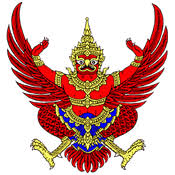Chapter 2 Employment of Labour in General
About TMA Group
TMA Group is a professional company focusing on local recruitment and corporate consulting in Thailand, dedicated to providing one-stop services including recruitment, financial management, tax disposal, legal consulting, personnel management, etc. for enterprises and individuals. If you need more advice on investment in Thailand, please feel free to contact us.
Chapter 2
Employment of Labour in General
Section 23.An Employer shall notify a normal working time to an employee, by specifying the commencing and ending time of work in each day of the employee, which shall not exceed the working time for each type of work as prescribed in the Ministerial Regulations and not exceed eight hours per day. Where the working hours of any day are less than eight hours, the Employer and the employee may agree to make up the remaining working hours in other normal working days, but not exceed nine hours per day and the total working hours per week shall not exceed forty-eight hours. Except for the work which may be harmful to health and safety of the employees as prescribed in the Ministerial Regulations for which the normal working hours shall not exceed seven hours per day and the total working hours per week shall not exceed forty-two hours.
Where the Employer and the employee agree to make up the remaining hours in other normal working days under paragraph one and the total working hours exceed eight hours per day, the Employershall pay remuneration to the daily employee and the hourly employee at a rate of no less than one and a halftimes of the hourly wage rate on a working day for a number of exceeding working hours, or to the employee who receives wages on a piece rate basis at a rate of not less than one and halftimes of the piece rate of wages of a working day for a number of piecework done in the exceeding working hours.
Where the Employer may not notify the commencing and ending time of daily work due to the nature or conditions of work, the Employer and the employee shall agree to specify the working hours in each day of not exceeding eight hours and the total working hours per week shall not exceed forty-eight hours.
Section 24.An Employershall not require an Employee to work overtime on a Working Day unless the Employee’s prior consent is obtained on each occasion.
Whereas the description or nature of work requires it to be performed continuously and stoppage may cause damage to the work, or it is emergency work, or other work as prescribed in the Ministerial Regulations, an Employer may require an Employee to work overtime as necessary.
Section 25. An Employer shall not require an Employee to work on a Holiday unless the description or nature of work requires it to be performed continuously and stoppage may cause damage to the work, or it is emergency work.
In that case, an Employer may require an Employee to work on a Holiday as necessary. An Employer may require an Employee to work on Holiday in a hotel business, an entertainment establishment, transport work, a food shop, a beverage shop, a club, an association, a medical establishment or any other businesses as prescribed in the Ministerial Regulations.
For the purposes of production, sale and service, an Employer may require an Employee to work on a Holiday as necessary, other than as prescribed under paragraph one and paragraph two, provided that the Employee’s prior consent is obtained on each occasion.
Section 26. The hours of Overtime Work under Section 24 paragraph one and the hours of Holiday work under Section 25 paragraph two and paragraph three in total shall not together exceed the numbers of hours prescribed in the Ministerial Regulations.
Section 27. On a Working Day, an Employer shall arrange a rest period during work for an Employee of not less than one hour per day after the Employee has been working for not more than five consecutive hours. An Employer and Employee may agree in advance that each rest period maybe less than one hour but the total rest period per day shall not be less than one hour.
Whereas an Employer and Employee agree to specify rest periods during work other than paragraph one, the agreement shall be applicable only if it is more favourable to the Employee.
A rest period during work shall not be counted as working time except where the total rest period is more than two hours per day, where the amount of time exceeding two hours shall be counted as normal working time.
Whereas any Overtime Work after normal working time is more than two hours, the Employershall arrange for the Employee to take a rest period of not less than twenty minutes before the Employee commences the Overtime Work.
The provisions in paragraph one and paragraph four shall not apply where an Employee is required to do work of a continuous nature or character with the consent of the Employee, or in case of the emergency work.
Section 28. An Employer shall provide a weekly holiday of not less than one day per week for an Employee, and the interval between weekly holidays shall be not more than six days the Employer and the Employee may agree in advance to fix any day as a weekly holiday.
Whereas an Employee performs work in a hotel business, transport work, work in a forest, work in a location lacking basic facilities, or any other work as prescribed in the Ministerial Regulations, the Employer and the Employee may agree in advance to accumulate and postpone weekly holidays to be taken at any time, but they must be taken within a period of four consecutive weeks.
Section 29. An Employer shall announce not less than thirteen traditional holidays per year in advance for Employees, including National Labour Day as specified by the Minister.
The Employer shall fix the traditional holidays according to the annual official holidays, religious or local traditional holidays.
If a traditional holiday falls on a weekly holiday of an Employee, the Employee shall take a day off to substitute for the traditional holiday on the following Working Day.
Whereas an Employer does not provide a traditional holiday to an Employee because the Employee performs work of such description or nature as prescribed in the Ministerial Regulations, the Employer shall make an agreement with the Employee to take another day off to substitute for the traditional holidays or the Employer shall pay Holidays Pay to the Employee.
Section 30. An Employee who has worked for an uninterrupted period of one year, is entitled to annual Holidays of not less than six Working Days in one year, and the Employer is obliged to fix the Holiday in advance for the Employee or as agreed by the Employer and Employee.
In the following year, the Employer may fix annual Holidays for the Employee of more than six Working Days.
The Employer and the Employee may agree in advance to accumulate and postpone any annual Holiday that has not yet been taken in a year to be included in the following years.
For the Employee who has not completed one year of service, the Employer may set annual Holidays for the Employee on aprorata basis.
Section 31. An Employer shall not require an Employee to perform work overtime or on which may be hazardous to the health and safety of the Employee under Section 23 paragraph one on overtime or a holiday.
Section 32. An Employee is entitled to sick leave as long as he or she is actually sick. For sick leave of three days or more, the Employer may require the Employee to produce a certificate from a first class physician or an official medical establishment. If the Employee is unable to produce a certificate from a first class physician or an official medical establishment, the Employee shall give an explanation to the Employer.
If a physician is provided by the Employer, this physician shall issue the certificate except where the Employee is unable to be examined by the physician.
A day on which an Employee is unable to work on account of injury or illness arising out of employment or on maternity leave under Section 41 shall not be regarded as sick leave under this Section.
Section 33. An Employee shall be entitled to leave for sterilisation and leave as a result of sterilisation for a period determined, and with a certificate issued by a first class physician.
Section 34.An Employee shall be entitled to leave for necessary business of not less than 3 working days per year.
Section 35. An Employee shall be entitled to leave for military service for inspection, military drilling or for readiness testing under the law concerning military service.
Section 36. An Employee shall be entitles to take leave for training or the development of his or her knowledge and skills in accordance with the rules and procedures prescribed in the Ministerial Regulations.
Section 37. An Employer shall not require an Employee to lift, carry on his or her shoulders, carry on his or her head, pull or push loads in excess of the weights prescribed in the Ministerial Regulations.
TMA Consulting Management has been paying attention to the updating of information through newsletters for many years, but we do not assume any responsibility for the completeness, correctness or quality of the information provided. No information contained in this article can replace the personal consultation provided by a qualified lawyer. Therefore, we do not assume any liability for damages caused by the use or non-use of any information in this article (including any kind of incomplete or incorrect information that may exist), unless it is caused intentionally or by gross negligence.











